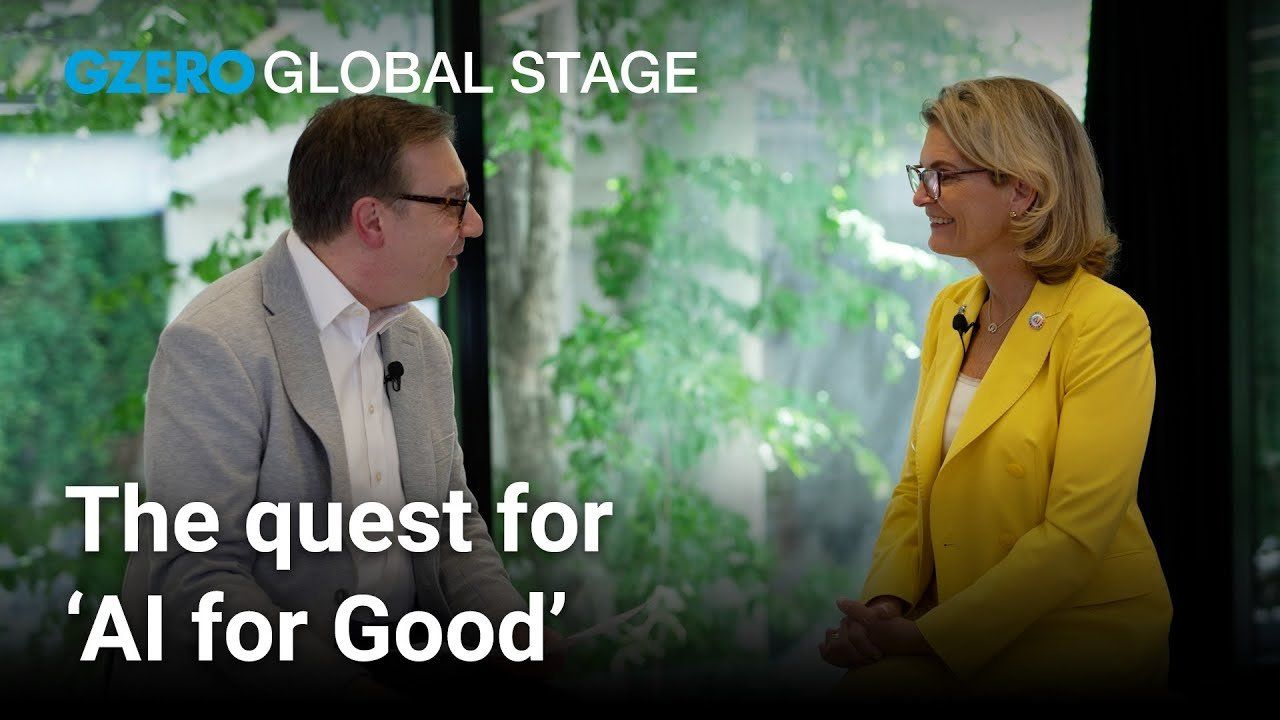AI For Good Summit
AI for Good depends on global cooperation, says ITU's Doreen Bogdan-Martin

- YouTube

“Connectivity is an enabler, but it’s not evenly distributed,” says Doreen Bogdan-Martin, Secretary-General of the ITU.
In a conversation with GZERO’s Tony Maciulis at the 2025 AI for Good Summit in Geneva, Bogdan-Martin lays out the urgent global challenge: a widening digital divide in AI access, policy, and infrastructure. “Only 32 countries have meaningful compute capacity. And 85% don’t have an AI strategy.”
She calls for investment in local solutions, digital skills, and inclusive governance. “If we want AI for good, we need all voices at the table, not just the loudest.” From youth-led innovation to calls for global cooperation in a fragmented geopolitical climate, she underscores a simple truth: AI’s potential won’t be realized unless it’s shared.
This conversation is presented by GZERO in partnership with Microsoft, from the 2025 AI for Good Summit in Geneva, Switzerland. TheGlobal Stageseries convenes global leaders for critical conversations on the geopolitical and technological trends shaping our world.
Europe enters 2026 under mounting strain as it confronts external threats, internal political pressures, and a weakening relationship with the United States. In GZERO’s 2026 Top Risks livestream, Mujtaba Rahman, Managing Director for Europe at Eurasia Group, describes a continent that is “exhausted, fatigued, weak, and vulnerable.”
Plot twist #PUPPETREGIME
4: Italy has reformed its voting rules four times since 1993, and Prime Minister Giorgia Meloni is now considering a fifth change.